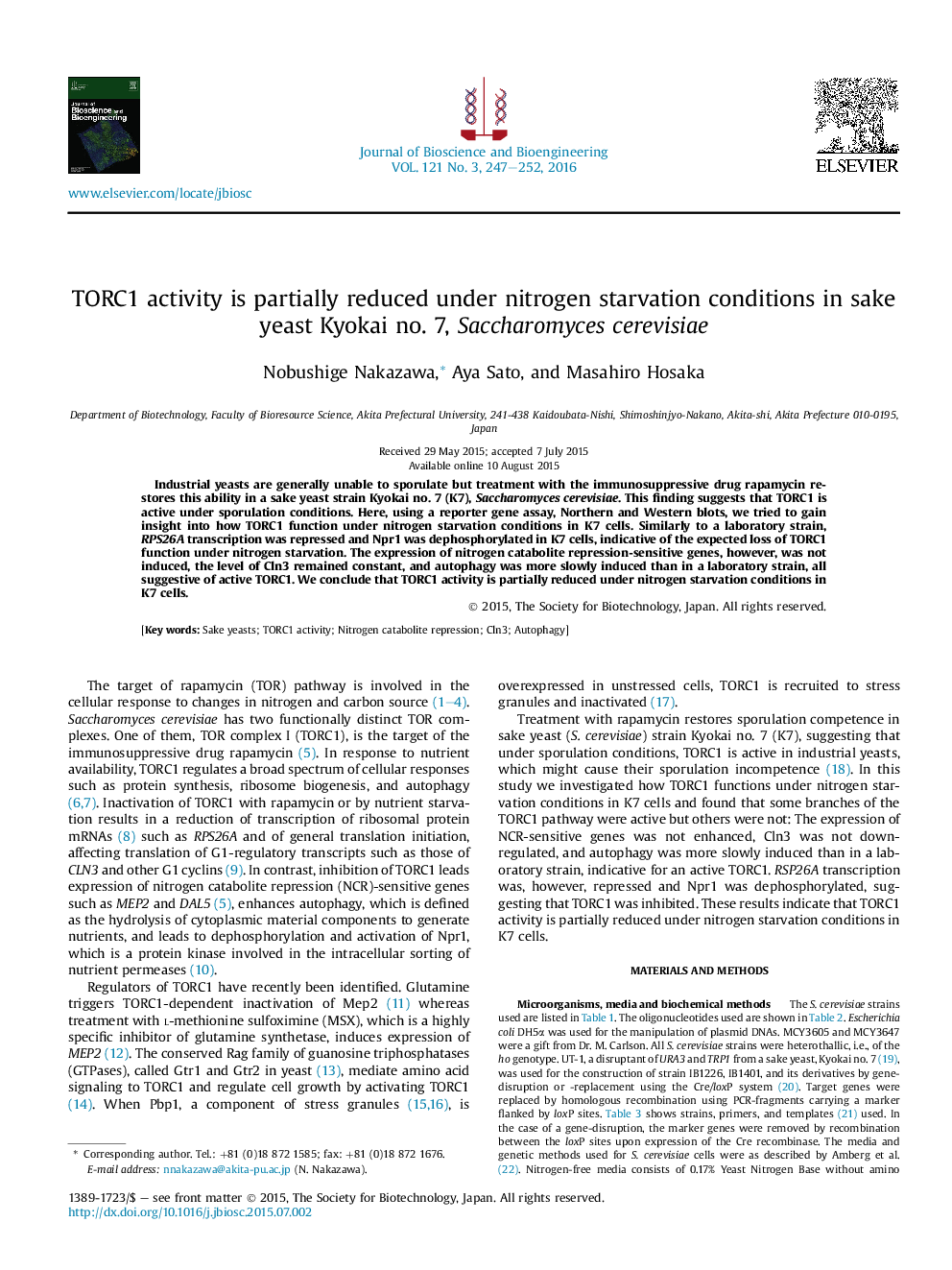| Article ID | Journal | Published Year | Pages | File Type |
|---|---|---|---|---|
| 20028 | Journal of Bioscience and Bioengineering | 2016 | 6 Pages |
Industrial yeasts are generally unable to sporulate but treatment with the immunosuppressive drug rapamycin restores this ability in a sake yeast strain Kyokai no. 7 (K7), Saccharomyces cerevisiae. This finding suggests that TORC1 is active under sporulation conditions. Here, using a reporter gene assay, Northern and Western blots, we tried to gain insight into how TORC1 function under nitrogen starvation conditions in K7 cells. Similarly to a laboratory strain, RPS26A transcription was repressed and Npr1 was dephosphorylated in K7 cells, indicative of the expected loss of TORC1 function under nitrogen starvation. The expression of nitrogen catabolite repression-sensitive genes, however, was not induced, the level of Cln3 remained constant, and autophagy was more slowly induced than in a laboratory strain, all suggestive of active TORC1. We conclude that TORC1 activity is partially reduced under nitrogen starvation conditions in K7 cells.
